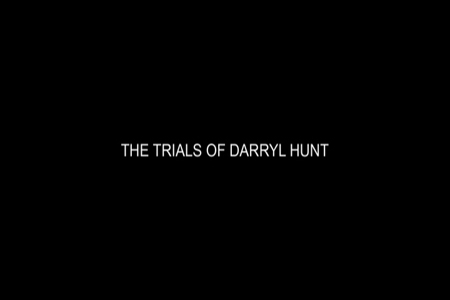
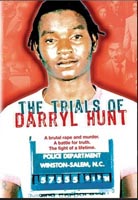 BUY IT AT AMAZON: CLICK HERE!
BUY IT AT AMAZON: CLICK HERE!
STUDIO: Velocity / ThinkFilm
MSRP: $27.98
RATED: PG-13
RUNNING TIME: 107 min.
SPECIAL FEATURES:
- HBO Featurette: Exclusive Interview with Regina Lane
- Bonus Interviews
- Theatrical Trailer
- Trailer Gallery
The Pitch
"It’s The Thin Blue Line in racist Winston-Salem."
The Humans
Darryl Hunt, Mark Rabil, Larry Little
The Nutshell
Deborah Sykes was a young white woman raped and stabbed to death in Winston-Salem, North Carolina. Darryl Hunt was arrested for her murder and despite the lack of any true evidence was found guilty and sentenced to life in prison. This is his story.
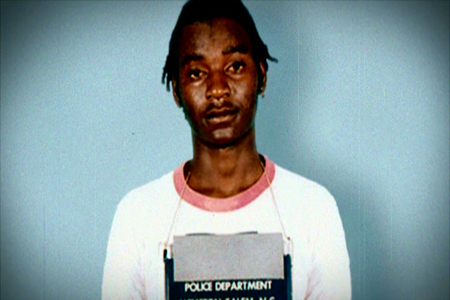
The Lowdown
“… you had already took my life when you convicted me of something I didn’t do.”
When you are making a documentary you have to decide what role you will play as a filmmaker. You can be a distanced reporter, an observer presenting evidence and allowing the viewer to decipher the information and make an informed decision on their own. You can also be a promoter, putting across your ideas in a logical order, convincing an audience that what you believe is right with evidence backing up your claims and knocking down the evidence that your opposition has built up. While Michael Moore has built a career being a promoter, it would seem that a more balanced, fair style of filmmaking would cause a less polarizing effect, and in fact be a stronger tool in bringing about the truth. It is through the style of the distanced observer that director’s Ricki Stern and Annie Sundberg tells us this story of Darryl Hunt.
It is clear up front that the documentary has a point of view. Darryl Hunt is an innocent man, convicted of a murder he never committed, and sentenced to spend life in prison in the face of flimsy evidence, testimony by unreliable witnesses and a seeming lack of care from everyone from the police to the court system itself. The documentary paints a picture of a situation that was so unfair that it would rob an innocent man of twenty years of his life and expose a system that seemed to be as incompetent and corrupt as any in recent memory. However, the way the filmmakers go about presenting the evidence does not point fingers at the people doing their job as much as it just gives us the evidence and testimony and lets all parties involved tell their sides of the story.
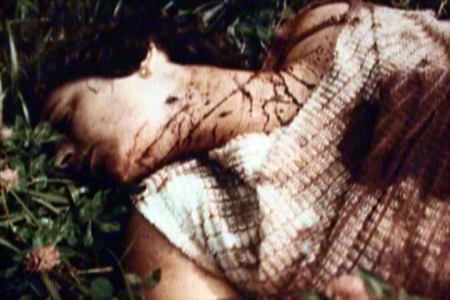
In August 1984, a young woman named Deborah Sykes was brutally raped and murdered in Winston-Salem, North Carolina. The police suspected a man named Sammy Mitchell. In an early interview with Darryl Hunt, he claims the police offered him $15,000 to testify that Mitchell killed the girl. Hunt refused to take money to lie about another man and was subsequently arrested for the murder himself. During the trial, a 14-year old self-proclaimed prostitute, a member of the Ku-Klux-Klan and a petty thief were called upon by the prosecution to testify against Darryl Hunt. Despite a lack of evidence in the case, the mostly white jury found Hunt guilty of the murder. Hunt would receive an ally in Larry Little, who began a Darryl Hunt defense fund and raised money for his attorney’s fees. In a second trial, six years later, he was offered the opportunity to be released with time served if he admitted to the murder. He refused and, with an all white jury hearing testimony that simply pulled at their heart strings, found him guilty of murder once again.
The documentary follows these two trials and presents interviews with all the participants in the court cases at the time of the trials. It lets each person tell their side of the story, their beliefs, and lets you determine which side you should believe. It is through the interviews with Darryl Hunt that you really begin to feel for the man. He remained positive through all the trials and tribulations and a smile rarely left his face. As the evidence began to move towards his innocence, you could see the wear and tear on his attorney’s faces, but Hunt always remained strong and believed that once day, justice would prevail. The film moves into parts of his life outside of the legal problems, as he would meet April who he married while still in prison in 2000. Her love for him showed through, as they dedicated their lives together while Hunt remained in jail, with no true future in sight.
The question of racism in the court system began to creep up at this point and the group of supporters for Darryl Hunt grew and grew as the years passed on. When a private investigator was hired, they learn that DNA evidence was available and the prosecution hid these facts from the defense. A true line of the good guys and the bad guys began to form. After the DNA evidence proved that Hunt was not the man who raped Sykes, a judge declared that was not enough to reverse the decision or allow him a new trial and it seemed like this real life story was growing more unreal as time passed. If this had been a fiction film, it would have seemed ridiculously false. As a true life story, it was simply ridiculous.
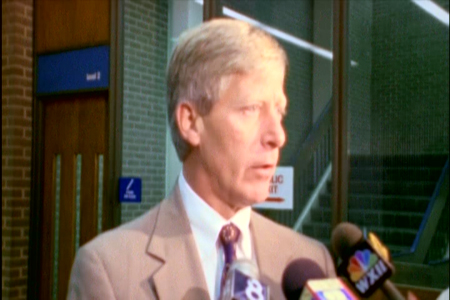
While the documentary presented a group of characters that were incompetent, negligent and downright criminal, it also presented a group of people who were almost beyond good. Mark Rabil was the attorney who represented Hunt for twenty years and never gave up hope that his client would one day be found innocent. He remained steadfast and did everything in his power to fight for the freedom of his man. Larry Little, who gave Hunt the biography of Malcolm X for moral support, stood strong and made sure that the support for Hunt would never be silent. Phoebe Zerwick, a reporter from the Winton-Salem Journal ran an eight page story simply giving the evidence in the case for the people to read, and through her hard work helped finally break the case and bring the true murderer to justice.
It is sad towards the end of the documentary when we see the mother of Deborah Sykes, who was so devastated by her daughter’s murder and so wore down by the process, that she showed up when Hunt was finally freed and told the judge that she still believed Hunt was guilty despite all evidence to the contrary. The filmmakers never show her as vindictive or crazy; they simply let her state her beliefs in this complicated story and then allow the cameras to remain rolling as Hunt turns to her and lets her know that she would remain in his prayers.
In the hands of these directors, Hunt’s story is told in an intelligent, masterful way that lets us live through all the ups and downs, the hardships and eventual triumph of this very strong individual. We live through his joy of marriage, his false hopes at early freedom and his eventual release and triumph in the face of impossible odds. It is a story that would make even the hardest man crack and is powerful enough to make a person furious that a system as flawed as the one in Winston-Salem could even exist.
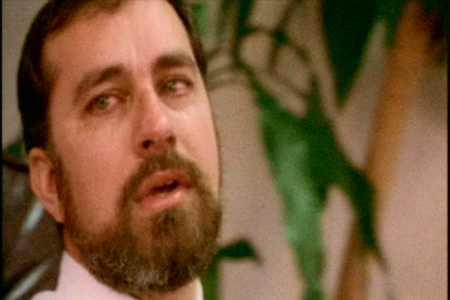
Hunt would receive $1.7 million this year in a lawsuit against Winston-Salem and now runs a foundation to aid others who have been wrongfully convicted, but this documentary is not about what Hunt has achieved since his release. It is about a man’s fight to prove that he was a good man, in the face of an overcoming adversary, and a group’s hard work to help him triumph and stand tall. It is about a man who never let the smile leave his face and always thought the best of life and love, never letting a corrupt system change who he was. It is the story of Darryl Hunt and it is one of the most powerful documentaries I have ever seen.
The Package
The picture quality is pretty good. As much of the footage is up to twenty years old, the quality falls at times, but it all looks fine in its transfer here. It is presented in 16.9 widescreen with a great sounding 5.1 Dolby Digital surround sound. The cover looks really good with Hunt’s mug shot and the films tagline.
There are extra interviews with Darryl Hunt, Mark Rabil, Larry Little and Barry Scheck. Hunt is asked about all the years of his life that was lost through his prison stay. It is interesting to hear him talk about the trouble of returning to a life outside of prison with twenty years of changes to readjust to. Mark Rabil talks about his work on the case and watching as Darryl was trying to fight through seemingly impossible odds. Larry Little talks about giving Hunt the autobiography of Malcolm X, as it was life changing for him and hoped it would help Hunt as he fought through his problems. Scheck talks about DNA testing and its results in clearing the names of many innocent people over the years.
There is an interview with Regina Lane, the woman raped six months following the attack on Deborah Sykes. She speaks about her thoughts concerning the similarities between her attack and the attack that took Sykes’ life. After seeing the film, she finally agreed to tell her story. She describes in great detail the attack, the robbery, the rape and her eventual escape. It was a very hard interview to do, and the camera actually had to be turned off at one point for her to catch her composure. It was very hard to watch. I’ve got to give this lady credit for sitting down and telling the story of what had to be the worst day of her life.
There is also the trailer and a gallery of other trailers.
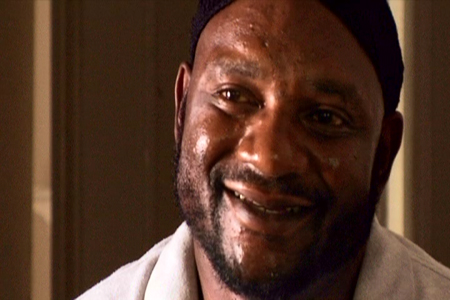
9.1 out of 10